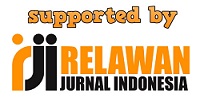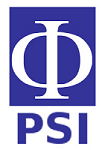Development of Learning Program Based on Multiple Representations Integrated with PjBL-STEM to Foster Students' Sustainability Literacy
DOI:
https://doi.org/10.25273/jpfk.v8i2.15660Keywords:
Learning Program, Multiple Representations, PjBL STEM, Sustainability LiteracyAbstract
Downloads
References
Azzahra, A., Sunaryo, S., & Budi, E. (2022). PF-73 Pengembangan E-Modul Interaktif Berbasis Pendekatan Sets (Science, Environment, Technology, And Society) Menggunakan Program Lectora Inspire Pada Materi Sumber Energi Terbarukan Kelas Xii Sma. Jalan Rawamangun Muka, 1. https://doi.org/10.21009/03.SNF2022
Barry, D. M., Kanematsu, H., Lawson, M., Nakahira, K., & Ogawa, N. (2017). Virtual STEM activity for renewable energy. Procedia Computer Science, 112, 946–955. https://doi.org/10.1016/j.procs.2017.08.130
Campbell, C., Lacković, N., & Olteanu, A. (2021). A “Strong†Approach to Sustainability Literacy: Embodied Ecology and Media. Philosophies, 6(1), 14.
Cebrián, G., Junyent, M., & Mulà , I. (2020). Competencies in education for sustainable development: Emerging teaching and research developments. In Sustainability (Vol. 12, Issue 2, p. 579). Multidisciplinary Digital Publishing Institute.
Davis, G., O’callaghan, F., & Knox, K. (2009). Sustainable attitudes and behaviours amongst a sample of non-academic staff: A case study from an Information Service
Department, Griffith University, Brisbane. International Journal of Sustainability in Higher Education, 10(2), 136–151. https://doi.org/10.1108/14676370910945945
Desnita. (2015). Halaman 7 Kurikulum Tersembunyi Lingkungan di dalam Materi Energi Terbarukan untuk Fisika SMA. Pengembangan Pendidikan Fisika, 1(2). https://doi.org/10.21009/1
Dinantika, H. K., Suyanto, E., & Nyeneng, I. D. P. (2019). Pengaruh Penerapan Model Pembelajaran Project Based Learning Terhadap Kreativitas Siswa Pada Materi Energi Terbarukan. Titian Ilmu: Jurnal Ilmiah Multi Sciences, 11(2), 73–80. https://doi.org/10.30599/jti.v11i2.473
Eshiemogie, S. O., Ighalo, J. O., & Banji, T. I. (2022). Knowledge, perception and awareness of renewable energy by engineering students in Nigeria: A need for the undergraduate engineering program adjustment. Cleaner Engineering and Technology, 6. https://doi.org/10.1016/j.clet.2021.100388
Ghorbani, F., Younesi, H., Sari, A. E., & Najafpour, G. (2011). Cane molasses fermentation for continuous ethanol production in an immobilized cells reactor by Saccharomyces cerevisiae. Renewable Energy, 36(2), 503–509.
Listiana, I., Abdurrahman, A., Suyatna, A., & Nuangchalerm, P. (2019). The effect of Newtonian dynamics STEM-integrated learning strategy to increase scientific literacy of senior high school students. Jurnal Ilmiah Pendidikan Fisika Al-Biruni, 8(1), 43–52.
Lopez-Medina, I. M., Ãlvarez-Nieto, C., Grose, J., Elsbernd, A., Huss, N., Huynen, M., & Richardson, J. (2019). Competencies on environmental health and pedagogical approaches in the nursing curriculum: A systematic review of the literature. Nurse Education in Practice, 37, 1–8.
Lund, H. (2007). Renewable energy strategies for sustainable development. Energy, 32(6), 912–919.
Nieveen, N. (1999). Prototyping to reach product quality. Design Approaches and Tools in Education and Training, 125–135.
Nugroho, O. F., Permanasari, A., Firman, H., & Riandi. (2019). STEM approach based on local wisdom to enhance sustainability literacy. AIP Conference Proceedings, 2194. https://doi.org/10.1063/1.5139804
Ocetkiewicz, I., Tomaszewska, B., & Mróz, A. (2017). Renewable energy in education for sustainable development. The Polish experience. Renewable and Sustainable Energy Reviews, 80(November 2016), 92–97. https://doi.org/10.1016/j.rser.2017.05.144
Pratiwi, Y., Yulia, S. R., & Ramli, R. (2021). Validity of physics student e-book based on the STEM approach to improve knowledge competence. Journal of Physics: Conference Series, 1876(1), 1–8. https://doi.org/10.1088/1742-6596/1876/1/012031
Probst, L., Bardach, L., Kamusingize, D., Templer, N., Ogwali, H., Owamani, A., Mulumba, L., Onwonga, R., & Adugna, B. T. (2019). A transformative university learning experience contributes to sustainability attitudes, skills and agency. Journal of Cleaner Production, 232, 648–656. https://doi.org/10.1016/j.jclepro.2019.05.395
Putri, K. D., Suyanto, E., & Nyeneng, I. D. P. (2019). Pengaruh Penerapan Model Pembelajaran Kontekstual dalam Pembelajaran Fisika terhadap Hasil Belajar Siswa pada Materi Energi Terbarukan. Titian Ilmu: Jurnal Ilmiah Multi Sciences, 11(2), 87–93. https://doi.org/10.30599/jti.v11i2.474
Azzahra, A., Sunaryo, S., & Budi, E. (2022). PF-73 Pengembangan E-Modul Interaktif Berbasis Pendekatan Sets (Science, Environment, Technology, And Society) Menggunakan Program Lectora Inspire Pada Materi Sumber Energi Terbarukan Kelas Xii Sma. Jalan Rawamangun Muka, 1. https://doi.org/10.21009/03.SNF2022
Barry, D. M., Kanematsu, H., Lawson, M., Nakahira, K., & Ogawa, N. (2017). Virtual STEM activity for renewable energy. Procedia Computer Science, 112, 946–955. https://doi.org/10.1016/j.procs.2017.08.130
Campbell, C., Lacković, N., & Olteanu, A. (2021). A “Strong†Approach to Sustainability Literacy: Embodied Ecology and Media. Philosophies, 6(1), 14.
Cebrián, G., Junyent, M., & Mulà , I. (2020). Competencies in education for sustainable development: Emerging teaching and research developments. In Sustainability (Vol. 12, Issue 2, p. 579). Multidisciplinary Digital Publishing Institute.
Davis, G., O’callaghan, F., & Knox, K. (2009). Sustainable attitudes and behaviours amongst a sample of non-academic staff: A case study from an Information Services Department, Griffith University, Brisbane. International Journal of Sustainability in Higher Education, 10(2), 136–151. https://doi.org/10.1108/14676370910945945
Desnita. (2015). Halaman 7 Kurikulum Tersembunyi Lingkungan di dalam Materi Energi Terbarukan untuk Fisika SMA. Pengembangan Pendidikan Fisika, 1(2). https://doi.org/10.21009/1
Dinantika, H. K., Suyanto, E., & Nyeneng, I. D. P. (2019). Pengaruh Penerapan Model Pembelajaran Project Based Learning Terhadap Kreativitas Siswa Pada Materi Energi Terbarukan. Titian Ilmu: Jurnal Ilmiah Multi Sciences, 11(2), 73–80. https://doi.org/10.30599/jti.v11i2.473
Eshiemogie, S. O., Ighalo, J. O., & Banji, T. I. (2022). Knowledge, perception and awareness of renewable energy by engineering students in Nigeria: A need for the undergraduate engineering program adjustment. Cleaner Engineering and Technology, 6. https://doi.org/10.1016/j.clet.2021.100388
Ghorbani, F., Younesi, H., Sari, A. E., & Najafpour, G. (2011). Cane molasses fermentation for continuous ethanol production in an immobilized cells reactor by Saccharomyces cerevisiae. Renewable Energy, 36(2), 503–509.
Listiana, I., Abdurrahman, A., Suyatna, A., & Nuangchalerm, P. (2019). The effect of Newtonian dynamics STEM-integrated learning strategy to increase scientific literacy of senior high school students. Jurnal Ilmiah Pendidikan Fisika Al-Biruni, 8(1), 43–52.
Lopez-Medina, I. M., Ãlvarez-Nieto, C., Grose, J., Elsbernd, A., Huss, N., Huynen, M., & Richardson, J. (2019). Competencies on environmental health and pedagogical approaches in the nursing curriculum: A systematic review of the literature. Nurse Education in Practice, 37, 1–8.
Lund, H. (2007). Renewable energy strategies for sustainable development. Energy, 32(6), 912–919.
Nieveen, N. (1999). Prototyping to reach product quality. Design Approaches and Tools in Education and Training, 125–135.
Nugroho, O. F., Permanasari, A., Firman, H., & Riandi. (2019). STEM approach based on local wisdom to enhance sustainability literacy. AIP Conference Proceedings, 2194. https://doi.org/10.1063/1.5139804
Ocetkiewicz, I., Tomaszewska, B., & Mróz, A. (2017). Renewable energy in education for sustainable development. The Polish experience. Renewable and Sustainable Energy Reviews, 80(November 2016), 92–97. https://doi.org/10.1016/j.rser.2017.05.144
Pratiwi, Y., Yulia, S. R., & Ramli, R. (2021). Validity of physics student e-book based on the STEM approach to improve knowledge competence. Journal of Physics: Conference Series, 1876(1), 1–8. https://doi.org/10.1088/1742-6596/1876/1/012031
Probst, L., Bardach, L., Kamusingize, D., Templer, N., Ogwali, H., Owamani, A., Mulumba, L., Onwonga, R., & Adugna, B. T. (2019). A transformative university learning experience contributes to sustainability attitudes, skills and agency. Journal of Cleaner Production, 232, 648–656. https://doi.org/10.1016/j.jclepro.2019.05.395
Putri, K. D., Suyanto, E., & Nyeneng, I. D. P. (2019). Pengaruh Penerapan Model Pembelajaran Kontekstual dalam Pembelajaran Fisika terhadap Hasil Belajar Siswa pada Materi Energi Terbarukan. Titian Ilmu: Jurnal Ilmiah Multi Sciences, 11(2), 87–93. https://doi.org/10.30599/jti.v11i2.474
Rau, M. A. (2017). Conditions for the Effectiveness of Multiple Visual Representations in Enhancing STEM Learning. Educational Psychology Review, 29(4), 717–761. https://doi.org/10.1007/s10648-016-9365-3
Russel, S., Schwenk, B., & Wiens, K. (2021). Sustainability Attitudes and Behaviors of Undergraduate Nutrition and Dietetics Students at the University of Delaware. Journal of the Academy of Nutrition and Dietetics, 121(9), A61. https://doi.org/10.1016/j.jand.2021.06.180
Serpa, S., & Sá, M. J. (2018). Exploring sociology of education in the promotion of sustainability literacy in higher education.
Syahmel, S., & Jumadi. (2020). Utilization of multiple representations in science learning. Journal of Physics: Conference Series, 1567(4), 1–8. https://doi.org/10.1088/1742-6596/1567/4/042028
van den Akker, J. (1999). Principles and methods of development research. Design Approaches and Tools in Education and Training, 1–14.
van den Akker, J., Gravemeijer, K., McKenney, S., & Nieveen, N. (2006). Introducing educational design research. Educational Design Research, 1, 3–7.
Yulia, S. R., Pratiwi, Y., & Ramli, R. (2020). Needs analysis in development of physics handout based on STEM approach for 11th grade of senior high school. Journal of Physics: Conference Series, 1481(1), 1–6. https://doi.org/10.1088/1742-6596/1481/1/012054
Downloads
Published
Issue
Section
License

Jurnal Pendidikan Fisika dan Keilmuan (JPFK) by http://e-journal.unipma.ac.id/index.php/JPFK/index is licensed under a Creative Commons Attribution-ShareAlike 4.0 International License.

















